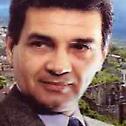Jordan Nikolic and Kosovo folk songs
Jordan Nikolic was born in Prizren, Kosovo and Metohija, in 1933. He studied Serbian language and literature at the Belgrade University, however he was interested in the folk music and motivated to become a musician and a folk singer.
Nikolic had his first serious contacts with the singing of folk songs, and at the same time the first recordings, in Radio Pristina back in 1961. Two years later, he also became a music editor. In 1968, he started recording for Radio Belgrade, never stopping to expand his repertoire of the Kosovo folk songs and the circle of fans.
The original folk music has been preserved thanks to the fact that it was passed down from generation to generation, and thanks to the people who had traveled in our region and recorded the songs sung by people. One of them is the ethnomusicologist, professor Miodrag Vasiljevic, who bequeathed a collection of books "Yugoslav Musical Folklore," a true treasure. For decades, Jordan Nikolic has been selecting songs from one book from this collection under the title "Folk Melodies Sung in Kosovo and Metohija".
He gives us songs of his homeland in a pure, original style. With his expert interpretation, he managed to revive them in a way that emphasizes their lyric beauty, interesting rhythm and subtle melody. We know him as an undisputed singer who brings his heart and soul in his performance.
Many music critics say that Jordan Nikolic is the best Serbian interpreter of songs from Kosovo and Metohija. When listening to him, music connoisseurs are left with a kind of impression perhaps best illustrated by the words that were recorded by leading Serbian critics dealing with this kind of music. Thus, Dubravka Stamenkovic, music editor of Radio Belgrade wrote: "Jordan Nikolic should be listened to and watched. His voice, his movement is reduced, because such are melodies and words he uses while singing old folk songs. There is no exaggeration in his performance, everything is as the soul wants. The songs are simple and profound, actually noble. What he sings speaks about a primeval antiquity that he has accepted and that he cherishes in the best possible fashion. His melody, word, his movement and voice, form an entity that is part of the universe, this universe that touches our body."
Source: glassrbije.org


